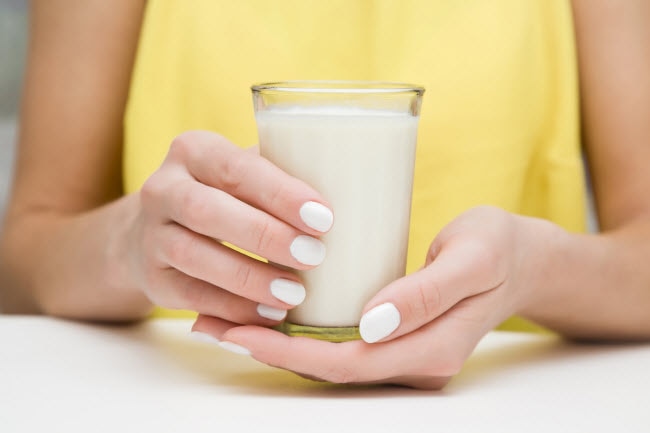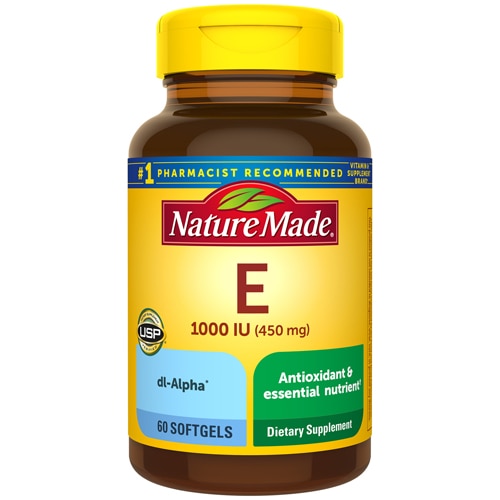Plants suffer from nutrient deficiencies, and we often apply compost, fertilizer or mulch to fix these issues. People suffer from nutrient deficiencies, too, but compost, fertilizer and mulch obviously won’t do any good.
“Vitamin deficiency is rampant and at the root of the most common chronic diseases in America,” says Evan Chait, a certified nutritionist in Ramsey, New Jersey.

While it might be obvious that a nutrient deficiency is plaguing a plant, it’s not necessarily as simple to detect a nutrient deficiency in a human.
So, how do you know whether you’re not getting enough of certain nutrients? Here are five nutrients that often aren’t plentiful enough in our diets, and how we can tell that need more of them.
Vitamin B6
If you lack a sufficient amount of vitamin B6, you might develop a rash or other skin problems, including dandruff, as well as scaly patches and red skin around oil parts of the body like the back, chest or face, according to the Academy of Nutrition and Dietetics. A serious B6 deficiency can trigger depression, confusion or seizures, the group says.
With a suspected lack of vitamin B6 or any other nutrient, a medical or nutrition professional can perform tests to help diagnose a deficiency. In addition, health and diet apps can track your eating habits, including whether you’re consuming enough nutrient-rich foods.
What vitamin B6 does: The vitamin aids in brain development and keeps the nervous and immune systems strong, according to the Mayo Clinic.
How to correct vitamin B6 deficiency: Eat more foods rich in vitamin B6, such as poultry, potatoes, chickpeas and bananas, the Mayo Clinic suggests. Vitamin B6 supplements, in the form of capsules, tablets or liquids, can be added to your diet, too.
Iron
How do you know you're getting enough iron? Symptoms of iron deficiency include fatigue, dizziness, weakness, headaches, pale skin, and cold hands and feet, according to the Academy of Nutrition and Dietetics and the Mayo Clinic. Another sign: Unusual cravings for non-food items such as ice.
What iron does: Iron is a mineral needed to produce red blood cells, the Mayo Clinic says. Red blood cells are critical to maintaining good health.
How to correct iron deficiency: Step up the amount of lean red meat, poultry and seafood that you eat. If you’re a vegan or vegetarian, ramp up your consumption of lentils, beans, spinach or iron-fortified cereals, the Academy of Nutrition and Dietetics recommends. In addition, you can add an iron supplement to your daily health regimen.
Vitamin D
Bone pain, muscle weakness and more infections are among the symptoms of vitamin D deficiency, according to the Academy of Nutrition and Dietetics.
What vitamin D does: Vitamin D is key to building and maintaining healthy bones, the Mayo Clinic says. Why? Because calcium, the main component of our bones, can be absorbed by the body only when vitamin D is hanging around.
How to correct vitamin D deficiency: Include more fortified dairy products, fortified orange juice, and fatty fish like salmon, sardines and mackerels in your diet, the Academy of Nutrition and Dietetics and the Mayo Clinic recommend. Oh, and soak up some sun to help your skin naturally produce vitamin D, but don’t forget to apply sunscreen.
Additionally, you can take vitamin D supplements, but keep in mind that consuming too much vitamin D might trigger an array of health problems.
Vitamin C
A lack of vitamin C can cause bleeding gums, bruising and slow-healing wounds, the Academy of Nutrition and Dietetics says.
What vitamin C does: Vitamin C is a workhorse. Aside from helping form blood vessels, cartilage, muscle and bone collagen, vitamin C promotes healing and protects your body from free radicals, which might be connected to cancer, heart disease and other diseases, the Mayo Clinic says.
How to correct vitamin C deficiency: Increase your consumption of fruits like berries, oranges, pineapple, lemons, limes, guava, papaya and kiwi, and your consumption of vegetables like bell peppers, broccoli, Brussels sprouts, cabbage, potatoes and spinach, according to the Academy of Nutrition and Dietetics and the Mayo Clinic.
Of course, you also can supplement your diet with vitamin C by taking capsules or chewable tablets, the Mayo Clinic says.
Vitamin B12
Among the health issues that can stem from vitamin B12 deficiency are anemia, fatigue, disturbed mood, intestinal problems, muscle weakness and nerve damage, the Mayo Clinic says.
What vitamin B12 does: Vitamin B12 is a jack (or jane) of all trades. It assists with formation of red blood cells, nerve function, DNA production and cell metabolism, according to the Mayo Clinic.
How to correct vitamin B12 deficiency: Vitamin B12 deficiency is, in most cases, rare. That’s because our bodies can store a multiyear supply of it, the Mayo Clinic says.
However, if you’re a vegan or vegetarian, you could be more susceptible to vitamin B12 deficiency, since plants don’t contain vitamin B12. As such, you might need to take oral supplements, or turn to vitamin B12 injections or nasal sprays.



